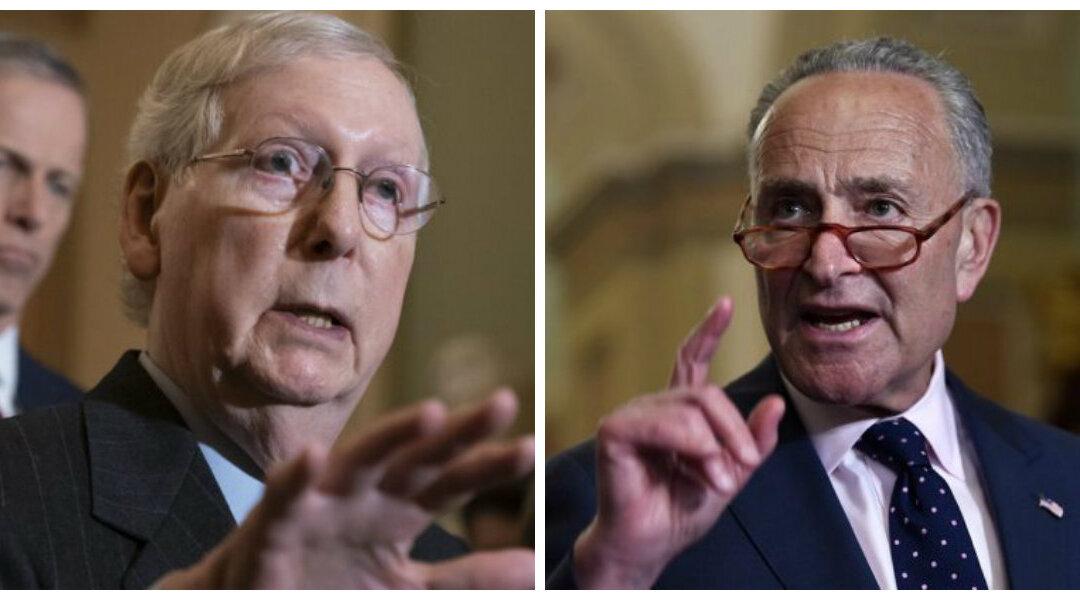Senate Majority Leader Chuck Schumer (D-N.Y.) and Republican Leader Mitch McConnell (R-Ky.) are close to striking a deal on a resolution that will formalize the structure of the proceedings of former President Donald Trump’s impeachment trial, according to multiple reports.
“We are finalizing a resolution that’s been agreed to by all parties—the House managers, the former president’s counsel, Leader McConnell and I—that will ensure a fair, honest, bipartisan Senate impeachment trial of Donald Trump,” Schumer said at a press conference in New York on Monday.





